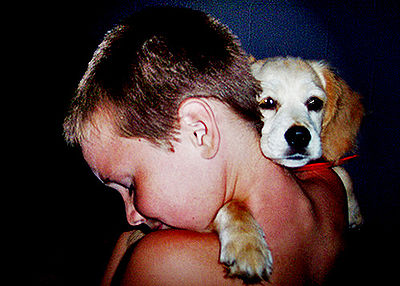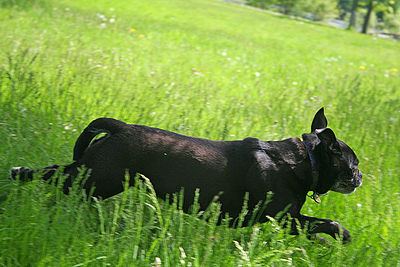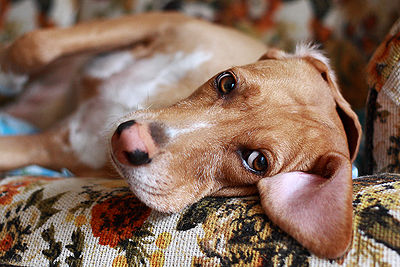
Socializing your pup helps him/her to become comfortable with its environment and all its sights, smells and noises.
Puppies do best when learning to socialize between 3-12 weeks old. After that dogs become more cautious about anything new or different in their surroundings. As your pup grows, s/he becomes more suspicious of new encounters. After 18 weeks old, it is more difficult to socialize a dog as they are not as trusting of new things and can find them frightening. Dogs that are well-socialized are less likely to have behavioral issues and are more content in their lives.
Things that we take for granted such as traffic noise, large trucks, crowds, cyclists, the vet, even a fire hydrant and more can appear menacing to a dog. Dogs that are not socialized can become fearful. Often that fear turns into aggression, something we would all like to avoid.
In order to socialize your pup/dog, you should expose him/her to as many experiences that could trigger an unwanted response. But don’t rush out and involve your pet in all these scenes at once. Take one at a time and make it pleasant. Always have some treats handy. Watch your pup’s reaction to each new situation. If s/he seems frightened, take a step back. For instance, if you take your pup to a noisy playground and s/he begins to cringe and cling to you or shows any other signs of being upset, move to an area where there are few children and less excitement. Always praise, pet and offer some treats so that your pup associates each new experience with something positive.
Attending puppy training classes, even as early as 6 weeks old or training classes for your adult dog helps them socialize in a safe, secure environment. The added advantage is that they learn basic commands.
The ASPCA suggests that you keep a checklist of what your dog has been exposed to and at what age. Here are some ideas.
People -babies, toddlers, children, teens, adults, the elderly
People with wheelchairs, crutches
Skaters, cyclists, skateboards, motorcyclists, buses, trains
Drunks, people with odd gaits
Vets, people in uniform, repair people, delivery people, people with umbrellas, helmets, masks, hats, beards, glasses, carrying parcels, capes, strollers, wagons
People of various ethnicities
Crowds, clapping, cheering, yelling, loudspeakers, dancing, singing
Cats, horses, livestock, birds, other dogs
Boats, jet skis, snowmobiles
Manhole covers, grates, stairs, shiny floors, tiles, icy or wet streets, gravel, cement, mud
Walks at night or in inclement weather
Hot air balloons, helicopters, airplanes
Lawn mowers, vacuum cleaners, hair dryers, washers and dryers
Elevators, automatic doors, balconies, stairs
Tunnels, drive thrus, car washes
Construction and machinery noises
Fireworks, sporting events, fairs
Wind, rain, thunder, snow
Vet offices, clinics, hospitals
You may not be able to or need to expose your pup/dog to all of these experiences. But the more sights and smells and sounds your dog becomes accustomed to, the easier and more joyful your dog’s life and yours will be.
If you have adopted an older dog, the possibility exists that there are ingrained fears and some unwanted behaviors. Socialization may take more time and patience but certainly worth the effort.
If your dog has a problem socializing that you can’t help, seek out a professional dog trainer or animal behaviorist.



